Film director Ruben Östlund (Styrsö, Sweden, 1974) started his career making ski movies. From there to the top. His achievements include two Palme d’or and three Oscar nominations in the latest Oscars edition. A lover of dilemmas, he pushes his characters to the point of turning them upside down in order to “stir up new thoughts in the viewer”, like a contemporary sociologist. He welcomes us into his family home in Campos with his son in his arms and offers us a coffee. We jawing in a relaxed atmosphere, which contrasts with the endless, sometimes maddening and always satirical tension of his sequences.
Antonia Gil and Raúl Beltrán | Photos: Pep Caparrós.
– In your movies, you push characters and audiences to the limit.
– I love to challenge myself, so I often challenge the male character and push him further and further into a corner. For me it’s a sociological approach because it means letting the audience identify with the situation and think: ‘maybe I would have done the same thing’. I think it’s a lot of fun to watch and, at the same time, it gives me insights into human behaviour.
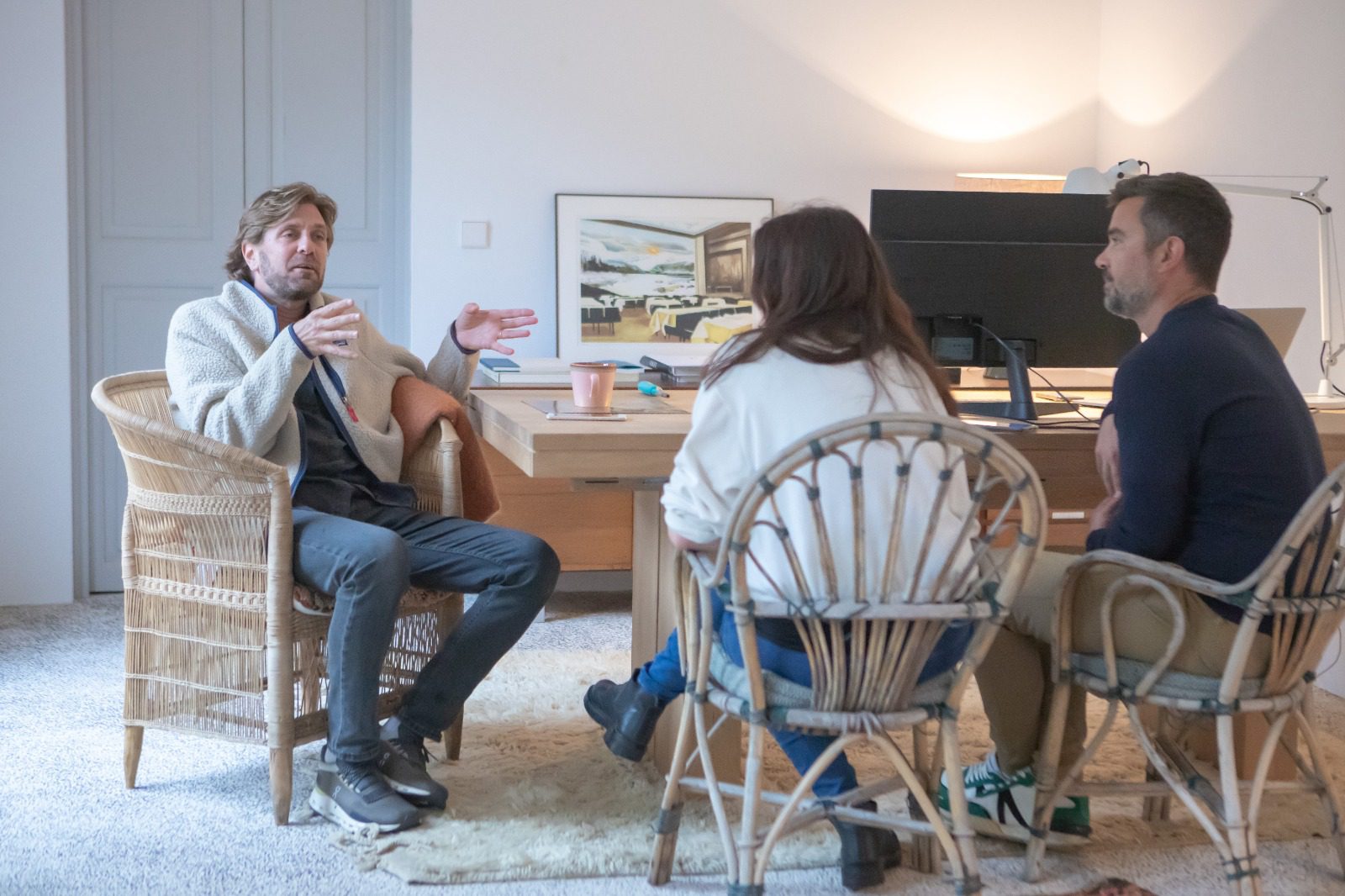
A moment of the interview with Östlund at his home in Campos.
– Where does The Triangle of Sadness come from?
– If you look at the content of the film I consider it political in many senses, so I probably have to go back to my childhood. In my family there has been an ongoing debate about politics. My mother still considers herself a communist. She talked a lot about Marx. Then when I met my wife, who is a fashion photographer, I became interested in the sociological point of view that, without education or money, beauty can become a currency and make you climb the social ladder.
– Do you enjoy putting people in grotesque situations, or just the wealthy?
– I assume you are referring to vomiting. I’m not so much interested in the fact itself, but how to see people look at other people who are vomiting. I love situations that are about nothing more than our fear of losing face in front of others and breaking the social contract.
– You’ve said that you’ve done 25 takes per sequence.
– (Laughs) I’ve done up to 120 takes. I constantly ask myself: do I believe in this, is this how it would happen? And very often I have to rethink it a bit. During The Triangle of Sadness I asked my assistant to buy a big gong. In the last take I didn’t say ‘action!’, I hit the gong. There was a vibrating silence. I was trying to create a moment where everyone was aware that it was now or never. That’s part of the method I use to create a unique moment.
– Your actors get prompts with references from YouTube
– Even animals. I’ve always been attracted to people trying to deal with their shame; people do stupid things to avoid embarrassment. I found a fantastic clip: Denver Official Guilty Dog. I’ve never seen shame expressed in a more powerful way. I said to the actors, ‘if we can get to 10% of how strong Denver’s shame is, we’ve come pretty far’.
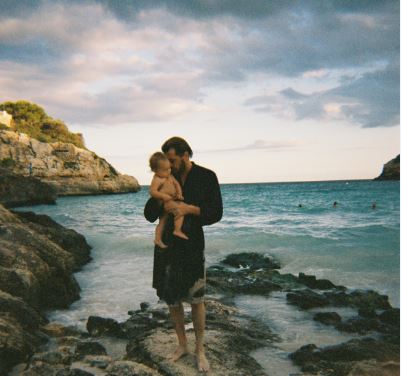
The film director shares a family moment with his son Elias. Photo: Sina Östlund.
– In The Triangle of Sadness the Russian oligarch says: “Stop bullshit, pay the taxes“
– I was inspired by this book (Rutger Bregman’s Utopia for Realists). It’s fantastic, he was in Davos with billionaires. These men were philanthropists who have made a lot of money and they were discussing how to make the world a better place, a very individualistic idea: ‘now I’m going to save the world’. For me, the only solution is taxes, taxes, taxes: Stop bullshit and pay the taxes!
– Do you feel contradictions between your ideology and world of cinema?
– I must say that I am not anti-capitalist, I am anti-individualist. Capitalism has improved the lives of many people, so it would be childish to be a dogmatic anti-capitalist, but of course capitalism has its dark side. It is more individualism that I focus on in The Triangle of Sadness.
– Have you moved away from a more auteur cinema to the detriment of a more commercial one?
– A lot of European films are made to get the money from the state film institute and, once we have it, we just make the film. But American films have a commercial side, they have to be financially successful and they have to work very hard to reach the audience. I think it’s important not to lose sight of the spectators because without an audience there is no cinema. And that’s why we have to create something that gives the public a strong experience. For me that is not to be less of an author.
– What do you try to stir up in the viewer with your films?
– I love it when I manage to give the audience something they want to discuss afterwards. If I don’t achieve that, I think I’ve failed.
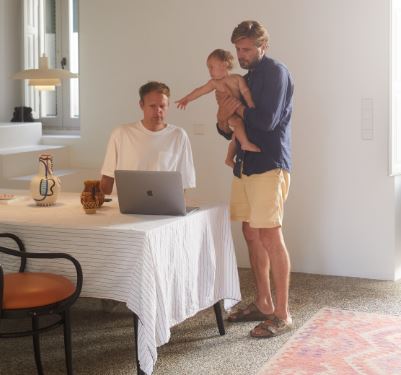
Östlund works with a collaborator at his home in Campos. Photo: Sina Östlund.
– What would you do if you were a governer?
– I would use this book (Utopia for Realists) again (laughs). Because I grew up in a left-wing family, my feeling is that during the 70s, 80s and 90s the world was always identified with either a Western liberalist perspective or an Eastern socialist perspective. It was almost like two football teams; you were either one team or the other. This book shows the positive side of two different kinds of political utopias, using the best of both. I think it would be interesting if we could get out of that football hooligan mentality when it comes to politics.
– Coppola, Haneke and yourself have won the Palme d’Or twice in a row
– I’ll be the first to win it three times! (laughs) I don’t take it too seriously. I’ve told my colleagues that we only have one chance to win it three consecutive times. Awards are good because they draw attention to your films, but you can’t rely on them too much. I use them as motivation to try to improve my work. You can be very lucky and what happened to me can happen and, of course, you have to be grateful for that.
– President of the jury at this year’s Cannes Film Festival, how do you feel?
– It’s a great honour because I thought that maybe that would happen to me much later in my career. For me Cannes represents the fight for the quality of cinema versus the scrolling where we sit and don’t reflect on what we are watching. I know there is a certain pressure to be in this position. There have been people who have been criticised a lot, like David Cronenberg, who didn’t give the Palme d’Or to Pedro Almodóvar for All About My Mother. People still ask him why?
– Will you shoot your next film in Mallorca?
– I would love that to happen. The entertainment system is down (the title of his new project) takes place in an airport and during a long-haul flight. Now I’m writing, casting and arranging financing, so shooting should start by 2024, I’d say. I can’t mention names, but I’m bringing Hollywood stars to Mallorca to meet me (laughs), although they may have come before.
You can read this and other contents in the spring-summer magazine of Mallorca Global Mag, which you can find at newsstands.


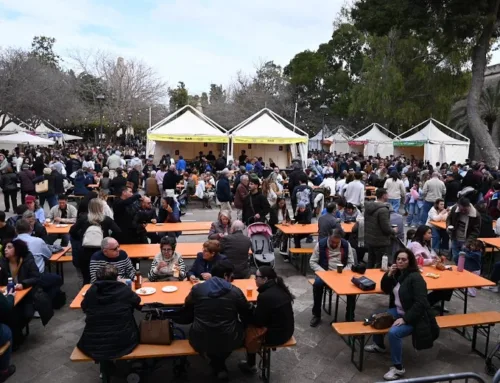
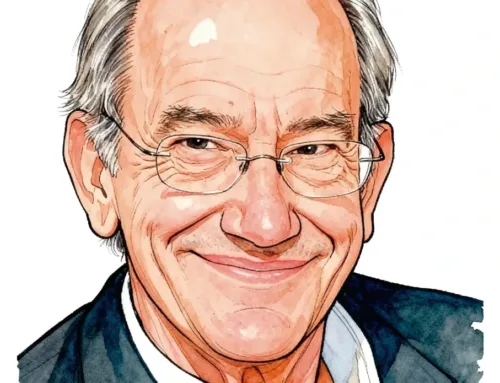
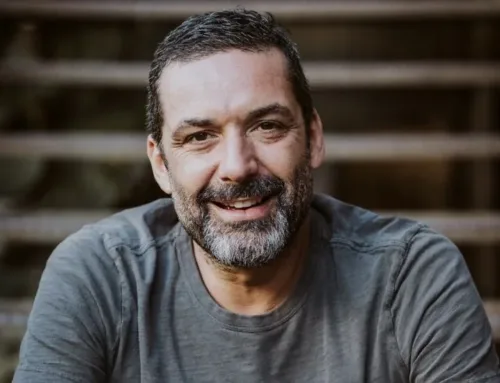
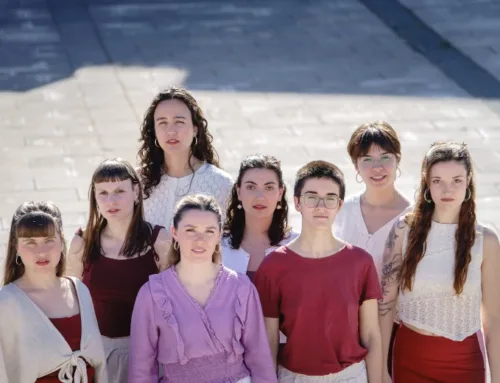

Leave A Comment